
Brazilians will vote in presidential elections in October amid unprecedented levels of political violence. The frontrunners in the battle to lead Latin America’s largest democracy and its largest economy are bitter rivals embodying starkly opposing values. Former president Luiz Inacio Lula da Silva (known as “Lula”), who was jailed and then cleared by the courts, is on a mission to save Brazil from a far-right dictatorship. Jair Messias Bolsonaro, who was elected president in 2018, claims to be saving the country from communism and has threatened not to respect the vote if "red outlaws" and "crooks" return to power.
Both candidates cite their humble origins and have built up their legends over decades. With personalities and approaches to the economy and foreign policy that are poles apart, they offer no room for political detachment: 70% of voters say they are certain to vote for one or the other.
Brazil’s military emerged from a decades-long absence from the political spotlight to take a public stand against Lula and in support of Bolsonaro's government after his 2018 election. The generals have now waded into the thorny issue of electoral processes and have suggested that the military will be the arbiter of this election.
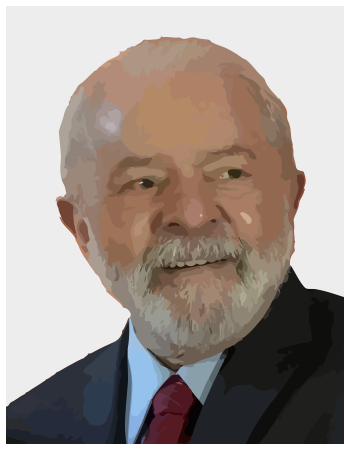
Age: 76
Profession: Metalworker, trade unionist
Political party: Founder of the Workers' Party in 1980, party president until 1994
President: Two terms (2003-2010)
Slogans: "For a happy Brazil again", "Love will overcome hate".
Running Mate: Geraldo Alckmin, a centre-right political powerhouse who ran for president in 2006 and 2018
Religion: Catholic. Close to the Dominican friar and liberation theologian Frei Betto
Private Life: After the 2017 death of Marisa Leticia, his wife of more than 40 years, with whom he has four children, Lula married Rosangela da Silva, a 56-year-old sociologist, in May 2022.
Click here for Bolsonaro’s ID card 
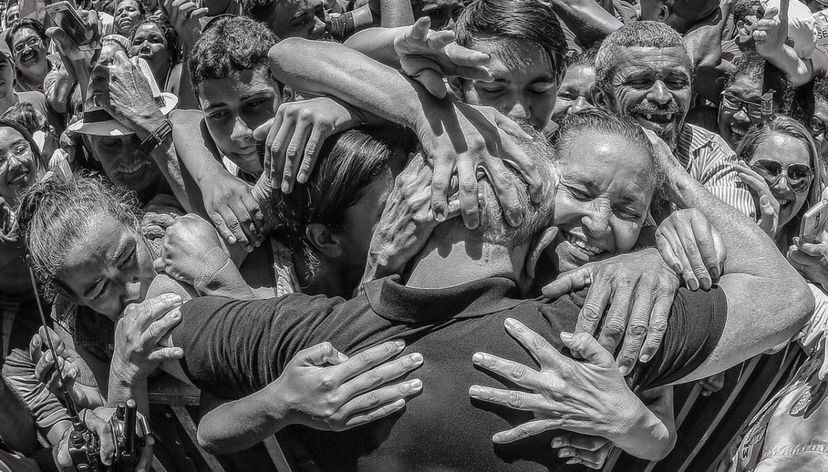
A global icon of the left, the metalworker who became president of an emerging power fascinates people far beyond Brazil. A charismatic politician and captivating speaker, Lula has marked nearly half-a-century of political life constantly celebrating the goodness of Brazilians and the beauty of a country "blessed by God".
Born in Pernambuco state, an arid and impoverished region in the northeast, Lula fled rural misery for the factories of Sao Paulo. In the country’s financial capital, he was a shoeshine boy and street vendor before working in factories, including an automobile parts workshop where he lost a finger on his left hand in a machine accident.
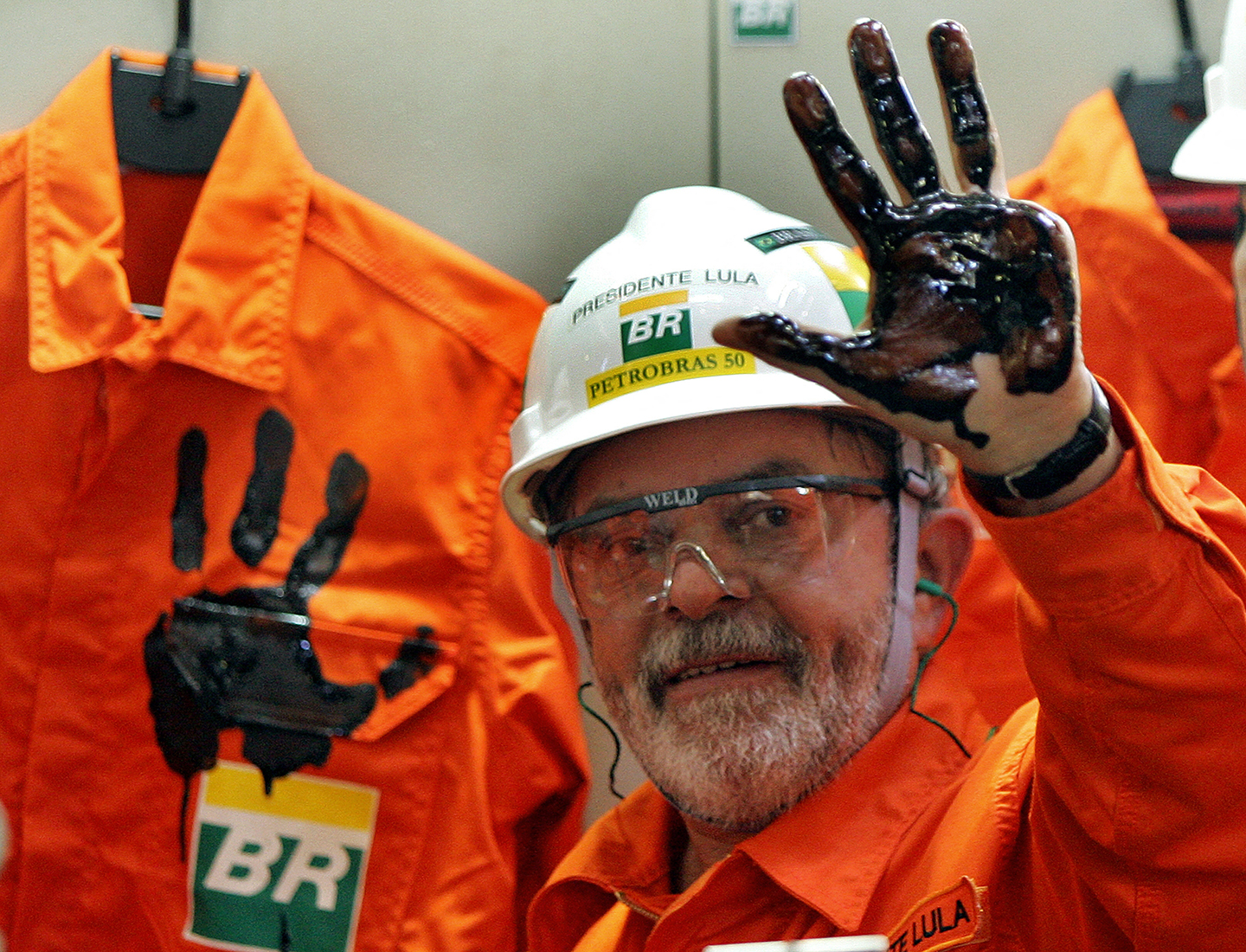
A trade unionist and then leader of the Brazilian left, Lula became president in 2003 and launched hunger eradication drives and family allowance programmes, which lifted 30 million Brazilians out of poverty.
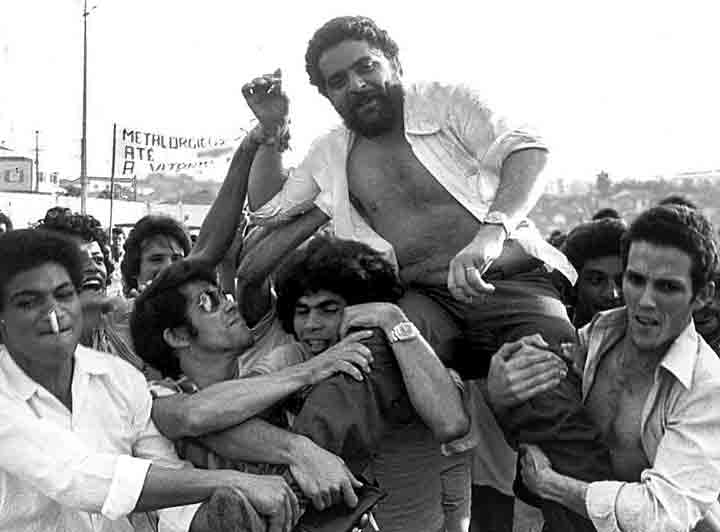
His government also adopted affirmative action measures to promote university access for Black Brazilians. On the environmental front, his government curbed deforestation in the Amazon but drew criticism from many environmentalists and indigenous communities for authorising the construction of the Belo Monte hydroelectric dam, the world’s fourth-largest, in the northern state of Pará.
A skilled negotiator who was able to finesse nearly impossible compromises, Lula left office in late 2010 with an 87% popularity rating. During his two consecutive terms in office (the constitutional maximum), several of his ministers and close associates were accused, and some convicted, of corruption. In 2016, he became the target of Judge Sergio Moro [who would later become Jair Bolsonaro’s justice minister] and prosecutors in a criminal investigation dubbed “Operation Car Wash” who singled Lula out as the leader of a massive corruption scheme.
On April 7, 2018, Lula was incarcerated in Curitiba in southern Brazil, and the country’s Supreme Court declared him ineligible to run in the October 2019 presidential election for which he had declared himself a candidate. A year-and-a-half later, in November 2019, the indefatigable political warrior was cleared by the Supreme Court. Released from prison, Lula regained his civil rights and embarked on his sixth presidential campaign.

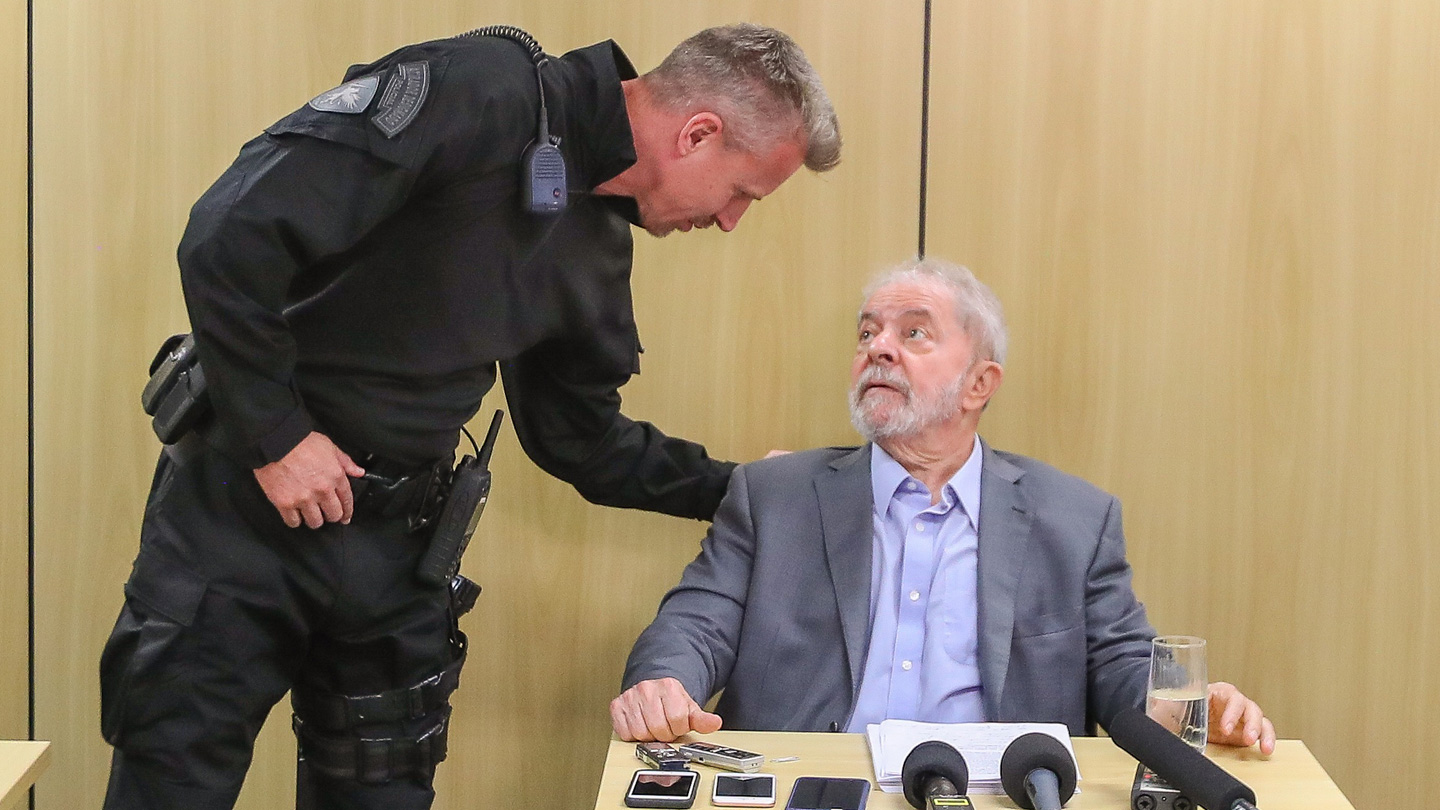
During his 2003-2010 presidency, Lula constantly sought the support of big business while implementing social and educational programmes. On the 2022 campaign trail, he has touted his economic and social record (a decade of economic growth and reduced inequality) and promises a return to the “happy” days of the Lula years.
 Gaspard Estrada
Gaspard Estrada
Lula’s pitch to Brazilian voters is an economic resurgence in their country, according to Gaspard Estrada, director of the Strategic Observatory of Latin America at Paris’s Sciences Po university. "He wants to extend and reformulate the social welfare programmes initiated under his presidency, to re-industrialise Brazil with a renegotiation of a possible agreement between [the Southern American trade bloc] Mercosur and the EU ... and to redirect the loans of the BNDES (National Bank for Economic and Social Development), a public investment bank, towards SMEs (small and medium-sized enterprises) rather than large companies.
Oliver Stuenkel, an international relations professor at the Getulio Vargas Foundation in Sao Paulo, notes that, "Lula is not a strong advocate of free trade. He criticises the social reforms of recent years, defends the environment and explains to the business community that Brazil would be better represented in globalisation with him at the helm.”

During his presidency, Lula championed a new Brazilian nationalism in major international institutions. Claiming Brazil's regional leadership in South America, he repeatedly sought a seat on the UN Security Council.
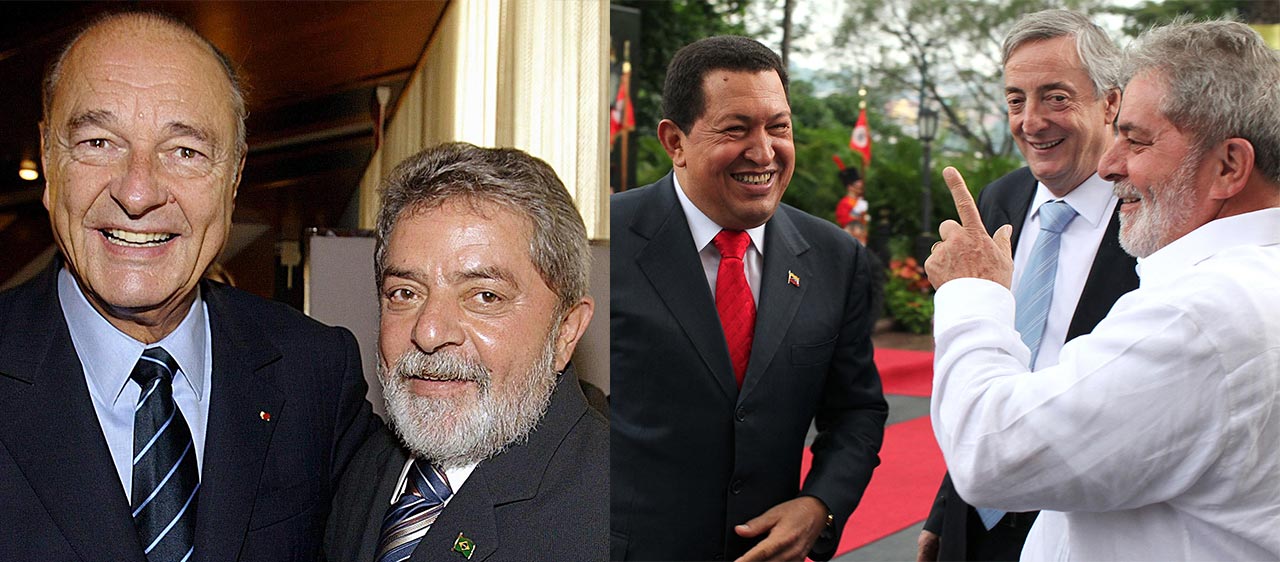
“Brazil has become an international pariah” under Bolsonaro, says Estrada. “The return of Lula to the presidency would translate into a change in the status of Brazilian diplomacy and would mark Brazil’s return to the international stage, whereas today, no leader on the planet wants to go to Brazil to meet Bolsonaro, and certainly not the Europeans.”

The Workers' Party was born during Brazil’s military dictatorship (1964-1985) and in opposition to the rule of the generals. However, during his two terms in office, Lula indulged the country’s powerful army by increasing its budgets and allowing the Brazilian military to lead a UN peacekeeping force in Haiti in 2004. The military even launched its first “pacification” of the favelas, north of Rio de Janeiro, in 2010 during the Lula administration.
Lula never confronted the military directly during his presidency. On the other hand, his successor, Dilma Rousseff, reawakened the army's traditional hostility to the left by launching a National Truth Commission in 2011, charged with investigating crimes committed by the junta between 1964 and 1985.
In April 2018, General Eduardo Villas Bôas, the army commander-in-chief, breached the military’s traditional non-interference in politics by appearing to call for Lula to be imprisoned in a statement Amnesty International criticised as a "threat to the democratic state of law."
On his verified Twitter account, the general said the army was well aware of its “institutional missions” and that the military, along with “all good citizens, repudiates impunity and respects the Constitution, social peace and democracy”.
The commander added that “in present-day Brazil, it is up to the institutions and citizens to determine who is serving the wellbeing of the country and its future generations and who is only serving themselves”.
Since then, the rupture has deepened and Lula is asking the army to “go back to the barracks” as mandated by the Constitution.

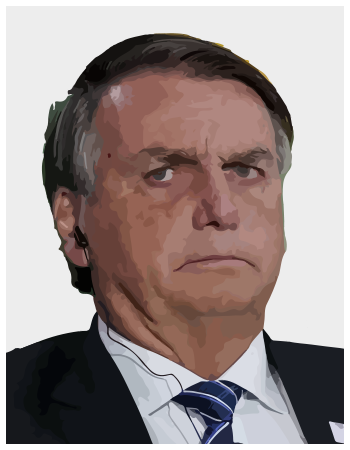
Age: 67
Occupation: Army Reserve Captain
Political party: Jair Bolsonaro joined the small ultra-conservative Liberal Party in 2021. This is the ninth party he has joined in his 33 years of political life.
President: One term, since 2018
Slogans: "God, Fatherland, Family and Freedom", "Brazil Above All, God Above All"
Running Mate: General Walter Braga Netto, one of the highest-ranking officers in the Brazilian army, former chief of staff of the presidency and defence minister during Bolsonaro's term
Religion: Catholic. Baptised in the Jordan River in 2016 according to evangelical rites
Private Life: His third wife, Michelle, a fervent evangelical Christian, is active on the campaign trail as are three of his sons who are elected officials, Flavio, Carlos and Eduardo.
Click here for Lula’s ID card 
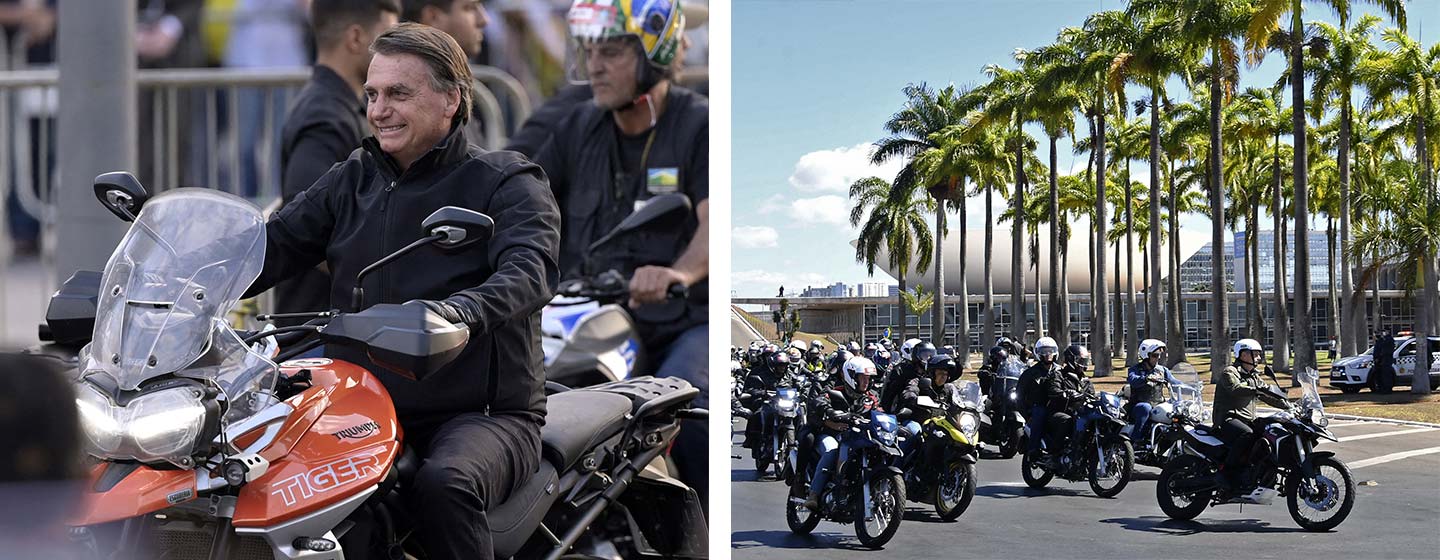
Dubbed the "Tropical Trump", Jair Bolsonaro has alarmed the international community during his mandate with his far-right extremism, contempt for institutions and science, and violent discourse posted daily on social networks.
An army officer trained during the years of anti-communist struggle in the 1970s and 1980s and a parliamentarian for 30 years, Bolsonaro has revealed a previously unknown Brazil to the world. It’s the Brazil of “bullets, beef and Bibles (BBB). In other words, a weapons-obsessed Brazil of agribusiness, marked by violence, delinquency and displays of obeisance at the temple of evangelical Christianity.
 Bruno Meyerfeld
Bruno Meyerfeld
"With his undisguised outrageousness, many people believed Jair Bolsonaro was a fringe phenomenon, that his 2018 election victory was the result of favourable conjuncture. On the contrary, I think he is a reflection of a certain far-right Brazil, very radicalised, which is increasingly evangelical, conservative and in favour of the right to bear arms or to destroy nature... ‘Bolsonarism’ is a way of doing politics without word limits. It is a liberation of instincts and a destruction of the Brazilian democratic system," said Bruno Meyerfeld, Brazil correspondent for French daily Le Monde.

While Bolsonaro’s rise is not as steep as Lula’s, his roots also stretch into Brazil's hinterland. The Brazilian president is the son of a "dentist without a diploma" who worked in the small rural towns of the Sao Paulo region. From the town of Eldorado, in a very colonial atmosphere, the young Bolsonaro dreamed of only one thing: to join the army and leave behind his modest origins. At the age of 15, he guided soldiers who were tracking down a guerrilla in his locality, and the following year he joined an army cadet school.
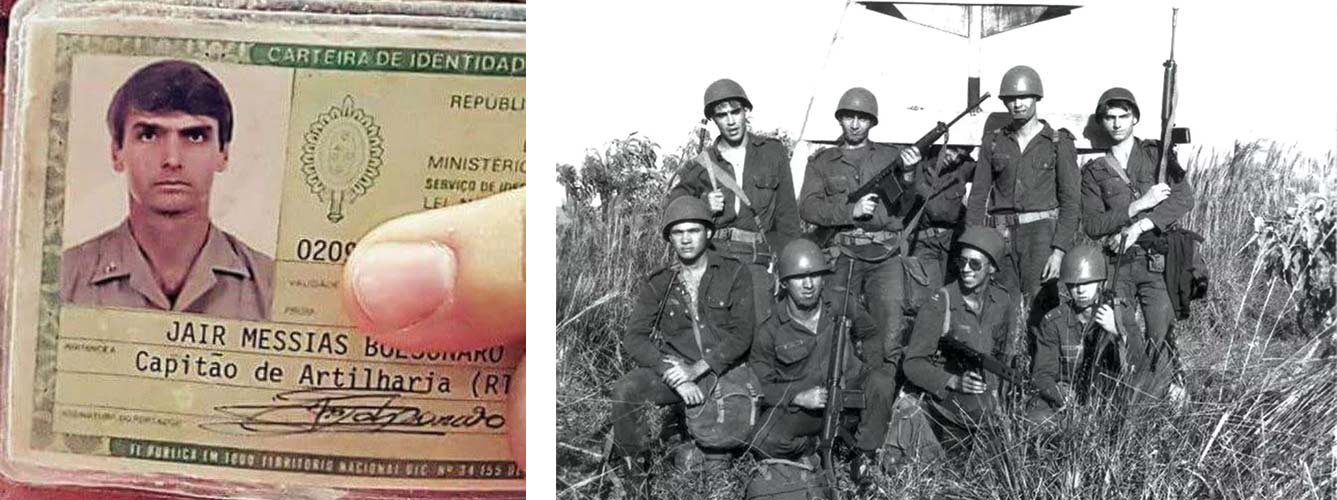
In 1977, he graduated as a second lieutenant from the Agulhas Negras Officers School. In 1988, he was dismissed from the army after publishing articles in the press demanding better pay for soldiers and because he was suspected of involvement in a plot to plant bombs in public places. The ex-military man then entered politics as a member of the Christian Democratic Party, a small right-wing party that defended Christian values and was mainly composed of parliamentarians who had supported the military dictatorship. He was elected federal deputy of Rio de Janeiro in 1990 and continued to be re-elected into parliament until his election as president in 2018.
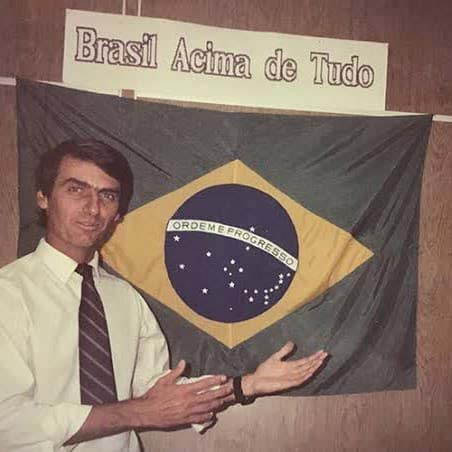
During Bolsonaro’s long parliamentary career, his misogynistic, homophobic and racist remarks often came under scrutiny. Openly nostalgic for the 1964-1985 military dictatorship period, he paid tribute to Colonel Carlos Brilhante Ustra, the officer who tortured Brazil’s first female president, Dilma Rousseff, when the former leftist guerrilla was imprisoned by the junta. During the 2016 parliamentary vote to impeach Rousseff, who was Lula’s political heir, Bolsonaro dedicated his “yes” vote to Ustra, calling him “the dread of Dilma Rousseff”.
Amid a climate of vengeful politics and judicial proceedings, with the anti-corruption Operation Car Wash unleashing an acrimonious rejection of traditional political elites, Bolsonaro launched his first bid for the Brazilian presidency election in 2018 and rose to the top of the polls. Months later, on September 6, he was stabbed in the street by a leftist activist diagnosed with a psychological disorder.
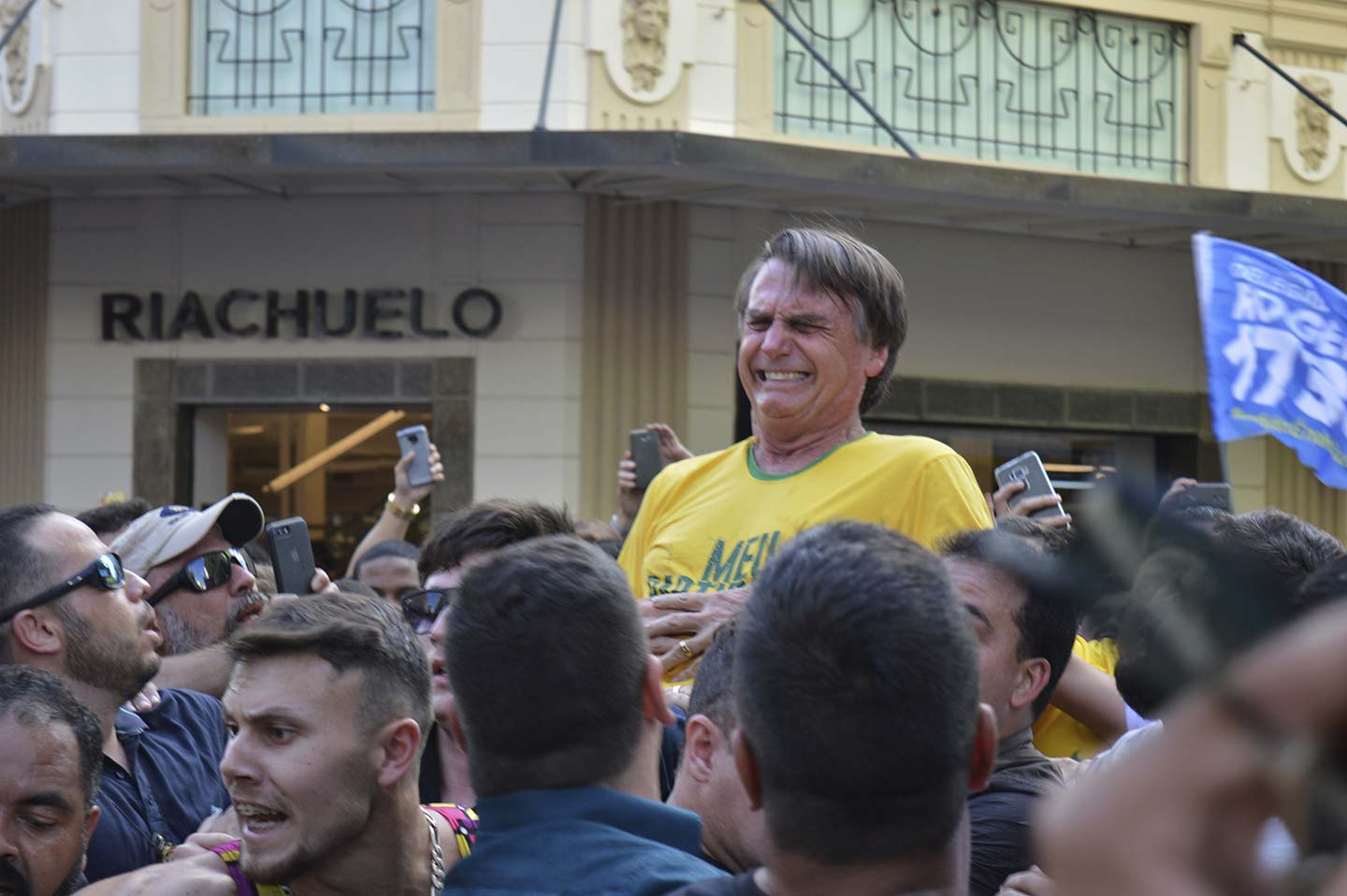
Less than two months later, he won the presidential election against the Workers' Party candidate with 55% of the vote and promised to “change Brazil’s destiny”. In his victory speech, Bolsonaro warned, “We cannot continue to flirt with socialism and communism”.
Bolsonaro’s term has been marked by his denial of the health crisis caused by the Covid-19 outbreak, which has killed more than 680,000 people in Brazil. He opposed vaccinations for months, entering into open conflict with state governors who had previously supported him, and who managed to launch local vaccination drives against the will of the federal state.
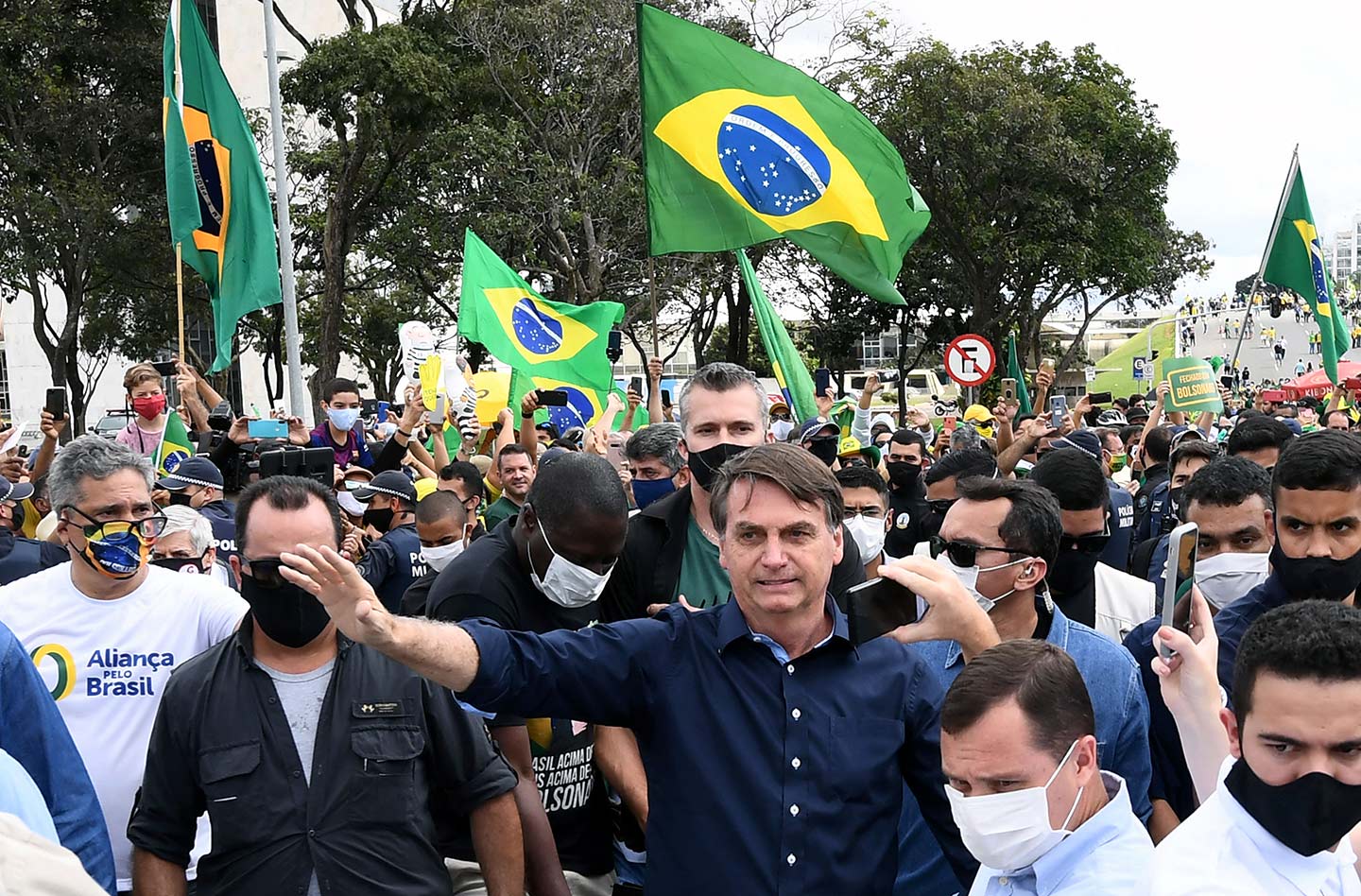
In 2021, on a national holiday, Bolsonaro incited thousands of his supporters to surround the capital, Brasilia, and converge outside the Supreme Court, which had ordered an investigation against him for spreading fake news, including questioning the voting system. Under pressure from some military and political leaders, he finally gave up.

His economic record is marked by the return of hunger, inflation and unemployment. In 2018, the newly elected head of state appointed an ultraliberal banker to head the economy ministry. Bolsonaro is a vocal defender of privatisations, free enterprise and tax cuts and an avowed enemy of the welfare state. Several experts say his economic orientations, however, are primarily opportunistic.
 Gaspard Estrada, Director of the Strategic Observatory of Latin America at Sciences Po
Gaspard Estrada, Director of the Strategic Observatory of Latin America at Sciences Po
With the Covid crisis, the increasingly unpopular far-right president began reviving social welfare policies. "Bolsonaro undertook these measures because of the elections, to gain votes among the poor electorate. Before the pandemic, he had never supported social spending programmes," said Oliver Stuenkel, professor of international relations at the Getulio Vargas Foundation in Sao Paulo.
"Bolsonaro's economic programme is extremely light. It consists of maintaining the benefits he has granted to his electoral bases, namely evangelical churches, agribusiness [scrapping policies against deforestation and illegal exploitation of the Amazon], or the police forces, which are numerous in Brazil," said Estrada.
After supporting him in 2018, the business community in Sao Paulo began distancing itself from the former army captain-turned-president, worried about the negative image he projects abroad.
Jair Bolsonaro is not afraid to flip-flop, publicly admitting that he doesn't understand anything about the economy. "In his campaign platform, he says he wants to privatise some public companies. That said, in 2018, he said he wanted to privatise all public companies, but the reality has imposed checks on him: these companies [whose leaders he was able to appoint, often from military ranks] supported his re-election campaign," explained Estrada.

During his tenure, Jair Bolsonaro has turned his back on the goal to make Brazil an emerging global power, settling for an isolationist and shadowy nationalism. But in 2020, he lost his main ally and supporter on the international stage, former US president Donald Trump.
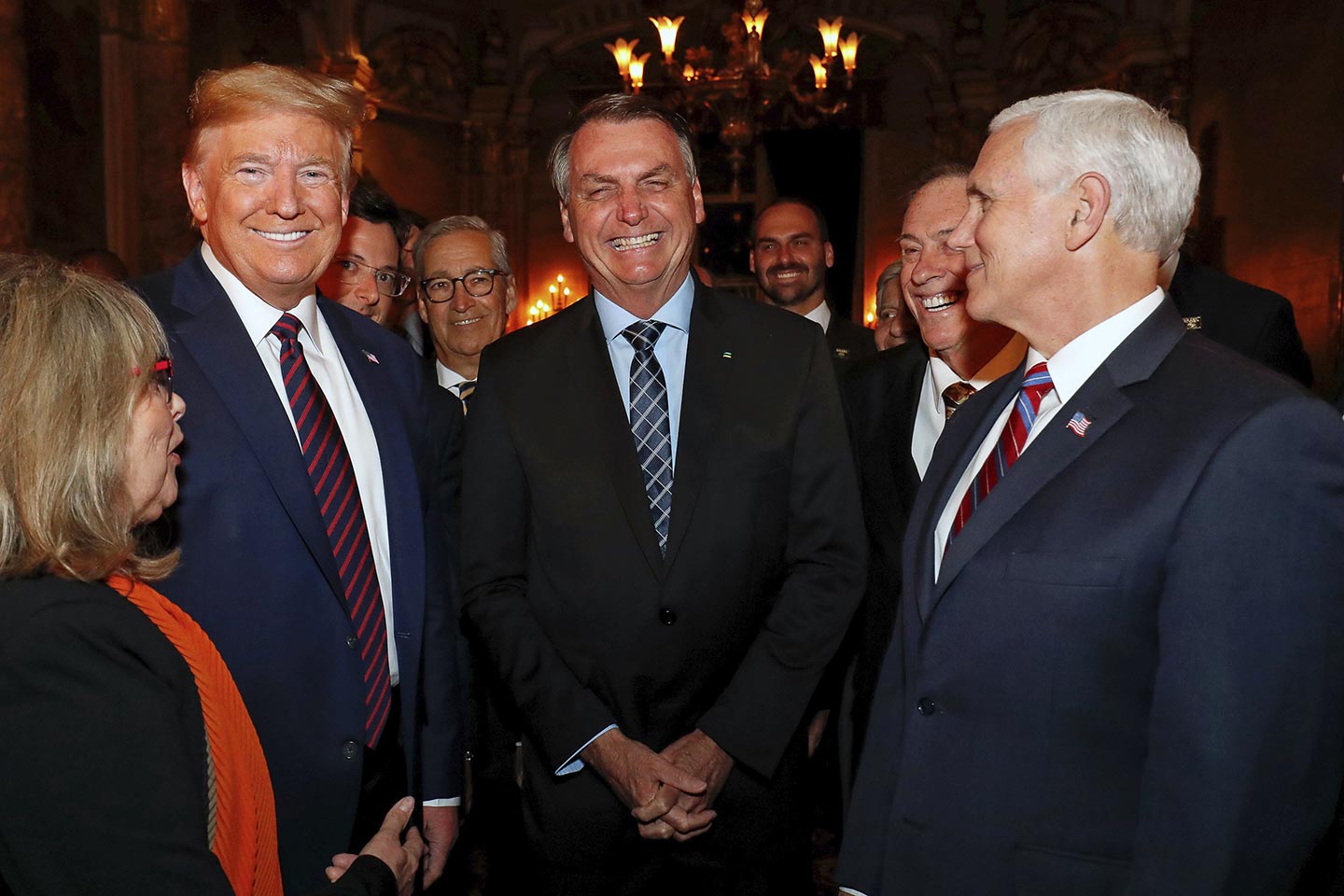
"He found himself isolated ... and now he is defending of the multilateral system of the United Nations. He was denouncing this in 2018. He called the UN system 'globalist Marxism'. But the damage is already done. Brazil is totally discredited in major climate negotiations where Brazil was a key player," Estrada said.
"His anti-globalisation, anti-environment, anti-LGBT, anti-multilateralism, anti-Western and anti-Chinese rhetoric has cut the country off from the rest of the world," added Stuenkel.
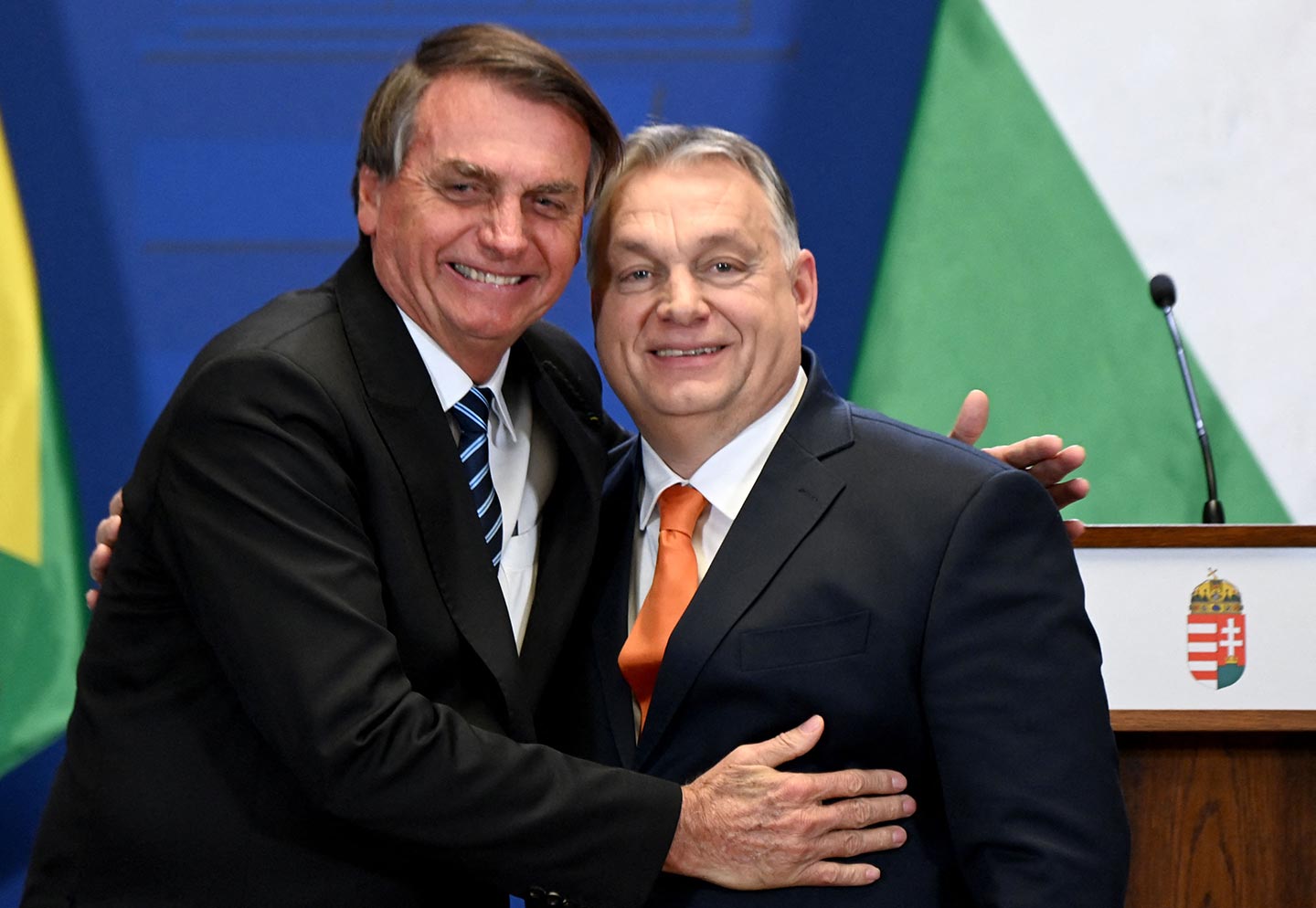
Bolsonaro holds the country’s record for the lowest number of overseas presidential visits since the return of democracy in Brazil. Out of 22 international trips, however, he has visited the US six times.

With his election in 2018, Bolsonaro allowed the Brazilian military – which had retreated to the barracks for nearly four decades since the end of the military dictatorship – to return to the political stage. During Bolsonaro’s tenure, nearly one-third of his ministerial appointments have been generals, and more than 6,000 military personnel have been appointed to the administration. While the military has taken advantage of Bolsonaro's election to move into the heart of power, it has sometimes distanced itself from the president, especially when he tries to suspend institutions and put in place a military junta.
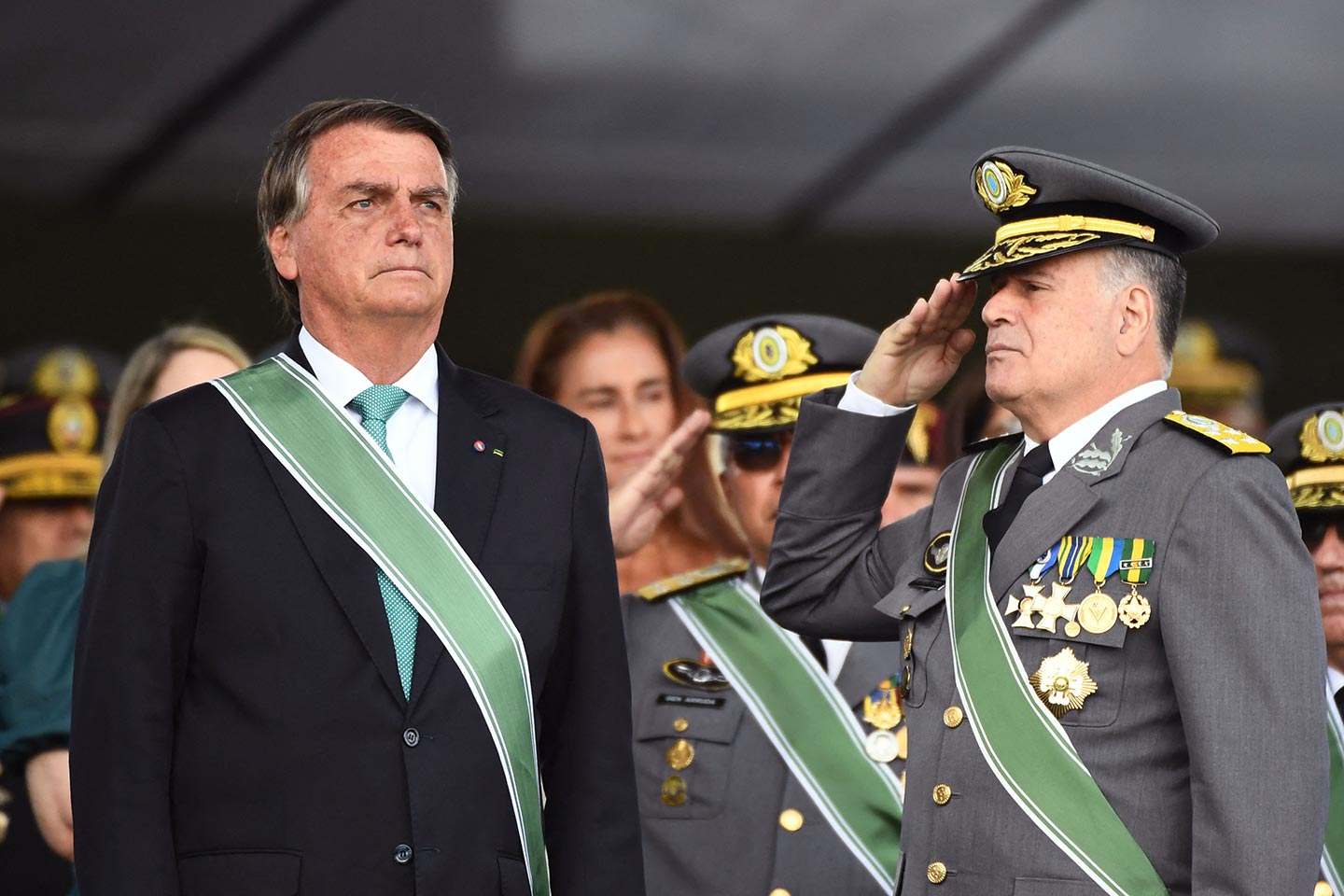
Anxious to preserve its positions and its newly acquired interests, the military is trying to project itself as an arbiter in the confrontation between Lula and Bolsonaro.
Periodically, military officers echo Bolsonaro’s talk about the risk of electoral fraud in the 2022 vote. "The army believes that its role is to say whether the election was fair or not, which is not in its constitutional prerogatives. It is talking openly about organising a parallel counting system. The big question is whether the army will force Jair Bolsonaro to leave the presidential palace and accept the result if he loses the second round with 48 or 49 percent of the vote," said Stuenkel. "Bolsonaro has learned the lesson of January 6, 2021 in the United States,” he added, “and he believes that Trump's biggest problem was that he did not have the support of the army.”

